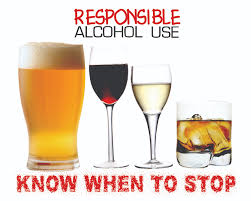By Dr. Josh Palgi | Published by April 13, 2018

In 1987, the National Council on Alcoholism and Drug Dependence (NCADD) designated April as Alcohol Awareness Month. The goal is to help reduce the stigma so often associated with alcoholism by encouraging communities to reach out to the American public each April with information about alcohol, alcoholism, alcoholism and recovery, and to educate people about the treatment and prevention of alcoholism. Particularly among the youth and the important role that parents can play in giving a better understanding of the impact that alcohol can have on their lives.
According to a national survey, on colleges campuses across the U.S., almost 60 percent of college students, ages 18-22, drank alcohol in the past month. And almost two out of three of them engaged in binge drinking during that same time frame.
Drinking affects college students, their families, and college communities at large:
- Researchers estimate that each year about 1,825 college students between the ages of 18 and 24 die from alcohol-related unintentional injuries, including motor vehicle crashes.
- About 696,000 students between the ages of 18-24 are assaulted by another student who has been drinking.
- About 97,000 students between the ages of 18-24 report experiencing alcohol-related sexual assault or date rape.
- About one in four college students report academic consequences from drinking, including missing class, falling behind in class, doing poorly on exams or papers, and receiving lower grades overall.
- Alcohol Use Disorder (AUD) is a broad term for any drinking of alcohol that results in mental or physical health problems. When alcoholism sets in you become an alcoholic. Essentially, alcohol becomes the most import aspect of your entire life.
- About 20 percent of college students meet the criteria for an AUD.
Other consequences include suicide attempts, health problems, injuries, unsafe sex, and driving under the influence of alcohol, as well as vandalism, property damage, and involvement with the police.
On the other hand, alcohol abuse is very different from alcoholism. Alcohol abuse refers to the overuse of alcohol, or the inappropriate use of alcohol. Usually alcohol abuse proceeds alcoholism.
Binge drinking is the act of drinking a lot of alcoholic beverages in short period of time. According to the National Institute on Alcoholism and Alcohol Abuse binge drinking has strict guidelines.
It is defined of any drinking pattern that brings the individual’s BAC level to .08 within two hours. For men, this means drinking five drinks during that period. For women, it means drinking four drinks.
New data published by the Center of Disease Control (CDC) indicates that alcohol consumption played a role in nearly one out of every 10 deaths among United States adults between the ages of 20 and 64. The CDC’s study also revealed that between the excessive alcohol use led to approximately 88,000 deaths in this country alone. These statistics are alarming.
According to the Substance Abuse and Mental Heath Services Administration (SAMHSA) more than half of Americans over the age of 12 report that they currently consume alcohol. That is approximately 176.6 million American drinkers. Of this population, and estimated 17 million people have an “alcohol use disorder” pursuant to the criteria published in the Diagnostic and Statistical Manual of Mental Disorders (DSM).
CDC researchers found that nearly one in three adults are excessive drinkers and most of them ‘binge drink’ usually on multiple occasions. Taken in conjunctions with the SAMHSA data, the number of American adults who consume an excessive amount of alcohol in a short period of time and on a regular basis is staggering.
Concurrently, the Department of Transportation data shows that there are over 200 million licensed drivers in America. Therefore, and by definition, the population of American drivers contains an overwhelming number of ‘binge drinkers’ and individuals who meet the diagnostic criteria for alcohol use disorders.
The theme for Alcohol Awareness Month is “help for today, hope for tomorrow”. If you or someone you know is struggling with alcoholism, consider looking for alcohol abuse treatment options in your area.
For more information about alcoholism and Alcohol Awareness Month, you can visit NCADD’s website, available at https://www.ncadd.org/about-ncadd/events-awards/alcohol-awareness-month

You must be logged in to post a comment.